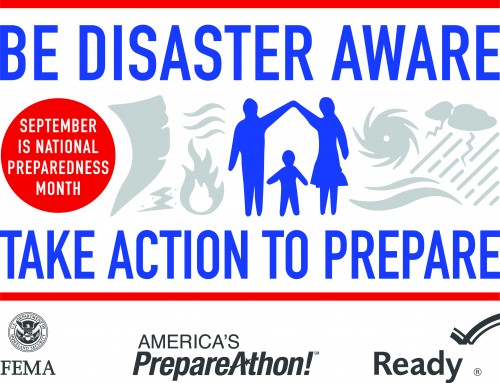 By Brandi N. Montreuil, Tulalip News
By Brandi N. Montreuil, Tulalip News
According to Ready.gov, research indicates individuals “who believe they are prepared for disasters often are not as prepared as they think,” while others may not be prepared at all. Imagine you are at work when an earthquake strikes your city leaving phone lines down, roads inaccessible, and you separated from you family. What is your plan?
The Federal Emergency Management Agency states that most disaster situations strike when families are not together. Being prepared beforehand can help reduce stress and length of time apart, and prevent further emergency situations.
Knowing who to call, where to meet and what to pack should be included in your family emergency plan, along with practicing that plan on a regular basis.
FEMA suggests sending text messages to contact one another in the event of emergency as phone lines become overloaded and calls are disrupted. You can also create contact cards for each family member that includes how you will communicate in different scenarios, and list out-of-state family members to notify that you are safe. Programming an “ICE” (In Case of Emergency) contact in your phone is also suggested. This can cut down time in an accident for emergency personnel to notify your family of your well-being.
An escape route should also be included in your emergency plan, such as meeting at a local store near your home. It is a good idea to include multiple meeting places in your plan according to your place of work, school, or children’s after-school activities, as disasters can happen at anytime.
Assembling an emergency kit for your home and car can increase your chance of survival until help arrives. Your kit should include enough supplies for at least three days and include important medication, non-perishable food and a gallon of water for each person in your house. Other things that should be considered for your kit include, flashlights, batteries, first aid kits, whistles to signal help, battery powered or solar cell phone chargers, tarps and duct tape for shelter, and a battery-powered radio or hand crank radio.
Knowing your communities emergency plan during different disasters will help your local first responders focus more on aiding people in critical incidents such as fires and collapsed buildings.
Getting involved in your community and receiving training through community emergency response teams, Medical Reserve Corps or your local emergency organizations can help keep your family and community safe from further risks and threats due to disasters.
For more information on preparing an emergency plan for your family, please visit the website www.ready.gov or search Tulalip Medical Reserve Corps at www.medicalreservecorps.org.
Brandi N. Montreuil: 360-913-5402; bmontreuil@tulalipnews.com

